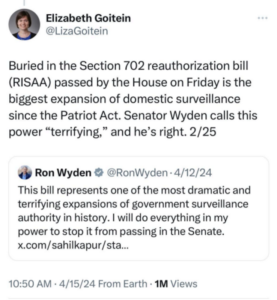You hear the phrase “metaverse” on a regular basis. However how typically have you ever thought of the definition? Coined in 1992 by science fiction author Neal Stephenson, the comparatively obscure time period exploded in popularity during the COVID-19 pandemic, notably after Fb rebranded as Meta in October 2021. There are actually myriad articles on the metaverse, and thousands of companies have invested in its development. Citigroup Inc. has estimated that by 2030 the metaverse could be a $13 trillion market, with 5 billion customers.
From local weather change to world connection and incapacity entry to pandemic response, the metaverse has unbelievable potential. Gatherings in digital worlds have significantly decrease carbon footprints than in-person gatherings. Individuals unfold all around the globe can collect collectively in digital areas. The metaverse can permit disabled individuals new forms of social participation through virtual entrepreneurship. And through the early days of the COVID-19 pandemic, the metaverse not solely provided people with ways to connect but in addition served as a spot the place, for example, these sharing a small condominium could possibly be alone.
No much less monumental dangers exist as well, from surveillance and exploitation to disinformation and discrimination.
However discussing these advantages and threats stays tough due to confusion about what “metaverse” truly means. As a professor of anthropology who has been researching the metaverse for almost 20 years, I do know this confusion issues. The metaverse is at a digital crossroads. Norms and requirements set within the subsequent few years are more likely to construction the metaverse for many years. However with out frequent conceptual floor, individuals can not even debate these norms and requirements.
Unable to tell apart innovation from hype, individuals can do little greater than discuss previous each other. This leaves highly effective corporations like Meta to actually set the phrases for their very own industrial pursuits. For instance, Nick Clegg, former deputy prime minister of the U.Okay. and now president of world affairs at Meta, tried to manage the narrative with the May 2022 essay dubbed “Making the Metaverse.”
Categorical prototypes
Most tried definitions for metaverse embody a bewildering laundry record of applied sciences and rules, however at all times included are digital worlds — locations on-line the place actual individuals work together in real-time. 1000’s of digital worlds exist already, some gaming-oriented, like Fortnite and Roblox, others extra open-ended, like Minecraft and Animal Crossing: New Horizons.
Past digital worlds, the record of metaverse applied sciences usually consists of avatars, nonplayer characters, and bots; digital actuality; cryptocurrency, blockchain, and non-fungible tokens; social networks from Fb and Twitter to Discord and Slack; and cellular units like telephones and augmented actuality interfaces. Typically included as nicely are rules like interoperability — the concept that identities, friendship networks, and digital gadgets like avatar garments should be capable of moving between virtual worlds.
The issue is that people don’t categorize by laundry lists. As a substitute, a long time of analysis in cognitive science have proven that most categories are “radial,” with a central prototype. One may outline “fowl” by way of a laundry record of traits: has wings, flies, and so forth. However the prototypical fowl for North Individuals seems to be one thing like a sparrow. Hummingbirds and geese are farther from this prototype. Additional nonetheless are flamingos and penguins. But all are birds, radiating out from the socially particular prototype. Somebody dwelling close to the Antarctic would possibly place penguins nearer to the middle.
Human creations are normally radial classes as nicely. If requested to attract a chair, few individuals would draw a dentist chair or beanbag chair. The metaverse is a human creation, and an important step to defining it’s to comprehend it’s a radial class. Digital worlds are prototypical for the metaverse. Different parts of the laundry record radiate outward and received’t seem in all circumstances. And what’s concerned might be socially particular. It’s going to look completely different in Alaska than it should in Addis Ababa, or when at work versus at a household gathering.
Whose concept of important?
This issues as a result of probably the most insidious rhetorical strikes at present underway is to say that some non-compulsory side of the metaverse is prototypical. As an illustration, many pundits outline the metaverse as based on blockchain technology and cryptocurrencies. However many current digital worlds use means aside from blockchain for confirming possession of digital belongings. Many use nationwide currencies just like the U.S. greenback, or metaverse currencies pegged to a nationwide forex. One other such rhetorical transfer seems when Clegg makes use of an image of a building with a basis and two flooring to argue not solely that interoperability might be a part of “the foundations of the constructing” however that it’s “the common theme across these floors.”
However Clegg’s warning that “and not using a important diploma of interoperability baked into every ground, the metaverse will change into fragmented” ignores how interoperability isn’t prototypical for the metaverse. In lots of circumstances, fragmentation is fascinating. I won’t need the identical identification in two completely different digital worlds, or on Fb and a web-based sport.
This raises the query of why Meta — and plenty of pundits — are fixated on interoperability. Left unsaid in Clegg’s essay is the “basis” of Meta’s revenue mannequin: monitoring customers throughout the metaverse to target advertising and potentially sell digital goods with most effectiveness. Recognizing “metaverse” as a radial class reveals that Clegg’s declare about interoperability isn’t a press release of truth. It’s an try to render Meta’s surveillance capitalism prototypical, the inspiration of the metaverse. It doesn’t should be.
Locking in definitions
This instance illustrates how defining the metaverse isn’t an empty mental train. It’s the conceptual work that can essentially form design, coverage, revenue, neighborhood, and the digital future. Clegg’s essay concludes optimistically that “time is on our facet” as a result of many metaverse applied sciences received’t be totally realized for a decade or extra. However as the VR pioneer Jaron Lanier has noted, when definitions about digital know-how get locked in they change into tough to dislodge. They change into digital frequent sense.
With regard to the definitions that would be the true basis of the metaverse, time is emphatically not on our facet. I imagine that now’s the time to debate how the metaverse will be defined — as a result of these definitions are very more likely to change into our digital realities.
This text is republished from The Conversation below a Artistic Commons license. Learn the original article.






More NFT News
How NASA Repaired Voyager 1 From 15 Billion Miles Away
BlockDAG’s Presale Defies Solana & XRP Worth.
DED MINE NFT Sport Rapidly Lures 11Ok Gamers, 30Ok Mints